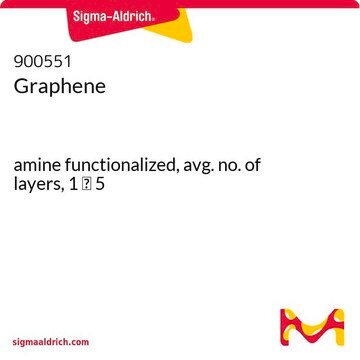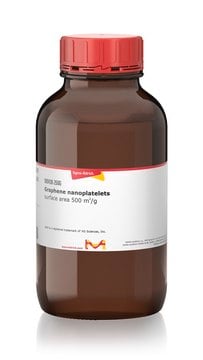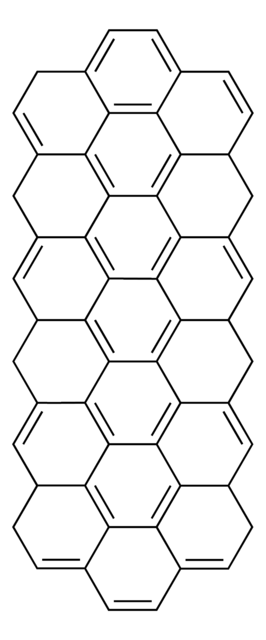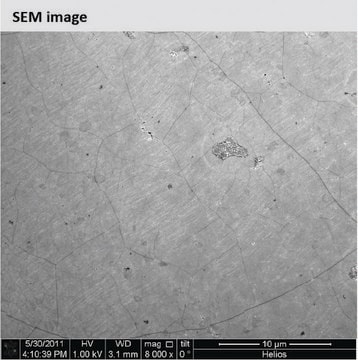900561
Graphene
powder, electrical conductivity >103 S/m, avg. no. of layers, < 3
Synonym(s):
few layers graphene, graphene powder
About This Item
Recommended Products
Looking for similar products? Visit Product Comparison Guide
General description
- Thickness: <3 layers.
- Lateral size : 0.5-5 μm.
Application
Graphene/polyaniline nanocomposites- modified electrodes can be used for the determination of heavy metals.
Heat-treated graphene nanosheets can be used to prepare solid adsorbents for rapid and selective CO2 capture applications.
Features and Benefits
- Superior electrical conductivity
- Large surface area
- High mechanical strength
- High degree of flexibility
Storage Class Code
13 - Non Combustible Solids
WGK
WGK 3
Flash Point(F)
Not applicable
Flash Point(C)
Not applicable
Choose from one of the most recent versions:
Certificates of Analysis (COA)
Don't see the Right Version?
If you require a particular version, you can look up a specific certificate by the Lot or Batch number.
Already Own This Product?
Find documentation for the products that you have recently purchased in the Document Library.
Articles
Self-healing soft electronic materials offer potential cost savings and reduced electronic waste.
Self-healing soft electronic materials offer potential cost savings and reduced electronic waste.
Self-healing soft electronic materials offer potential cost savings and reduced electronic waste.
Self-healing soft electronic materials offer potential cost savings and reduced electronic waste.
Related Content
Batteries, fuel cells, and supercapacitors rely on electrochemical energy production. Understand their operation and electron/ion transport separation.
Batteries, fuel cells, and supercapacitors rely on electrochemical energy production. Understand their operation and electron/ion transport separation.
Batteries, fuel cells, and supercapacitors rely on electrochemical energy production. Understand their operation and electron/ion transport separation.
Batteries, fuel cells, and supercapacitors rely on electrochemical energy production. Understand their operation and electron/ion transport separation.
Our team of scientists has experience in all areas of research including Life Science, Material Science, Chemical Synthesis, Chromatography, Analytical and many others.
Contact Technical Service







